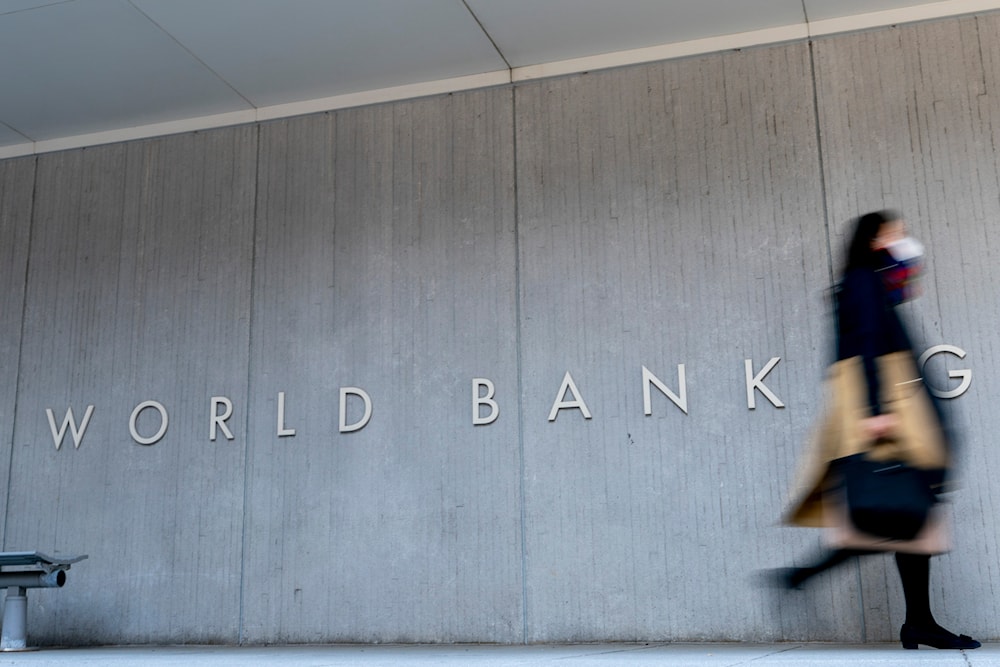World Bank: Global growth to slow sharply, worst since 2008
World Bank projects 2.3% global growth in 2025, citing trade tensions and policy uncertainty. Warns of weakest decade since 1960s if trends persist.
-

The World Bank building, Monday, April 5, 2021, in Washington (AP)
The World Bank warned on Tuesday that the global economy is expected to grow at its weakest pace since 2008, outside of recession periods, due to persistent trade tensions and rising policy uncertainty.
In its latest Global Economic Prospects report, the bank said that “Heightened trade tensions and policy uncertainty are expected to drive global growth down this year to its slowest pace since 2008 outside of outright global recessions.”
The report revealed that growth forecasts have been revised downward in nearly 70% of economies worldwide, indicating widespread economic strain across all regions.
Global growth is now projected to slow to 2.3 percent in 2025, nearly half a percentage point lower than earlier forecasts made at the start of the year.
While the report clarified that a global recession is not currently anticipated, it warned that if projections hold, average global growth during the first seven years of the 2020s will mark the slowest pace for any decade since the 1960s.
IMF cuts global growth forecast for 2025
In April, the International Monetary Fund (IMF) lowered its global growth forecast for 2025 to 2.8%, citing the economic impact of Trump tariffs and rising uncertainty. This marks a 0.5% point drop from its January forecast. The IMF expects global growth to rebound slightly to 3.0% next year, still 0.3% points lower than previously projected.
"We are entering a new era as the global economic system that has operated for the last 80 years is being reset," IMF chief economist Pierre-Olivier Gourinchas said during a press briefing in Washington. He warned that continued trade tensions could further dampen global economic performance.
The IMF highlighted that recent tariff increases between the US and China, including the latest hike to 145 percent on Chinese goods, have already slowed global trade growth. While the report includes measures up to April 4, additional tariffs not yet accounted for could further worsen the outlook.
In a separate Global Financial Stability Report, the IMF warned of growing global financial stability risks, driven by tighter financial conditions and heightened economic uncertainty linked to the tariff policies.

 2 Min Read
2 Min Read










